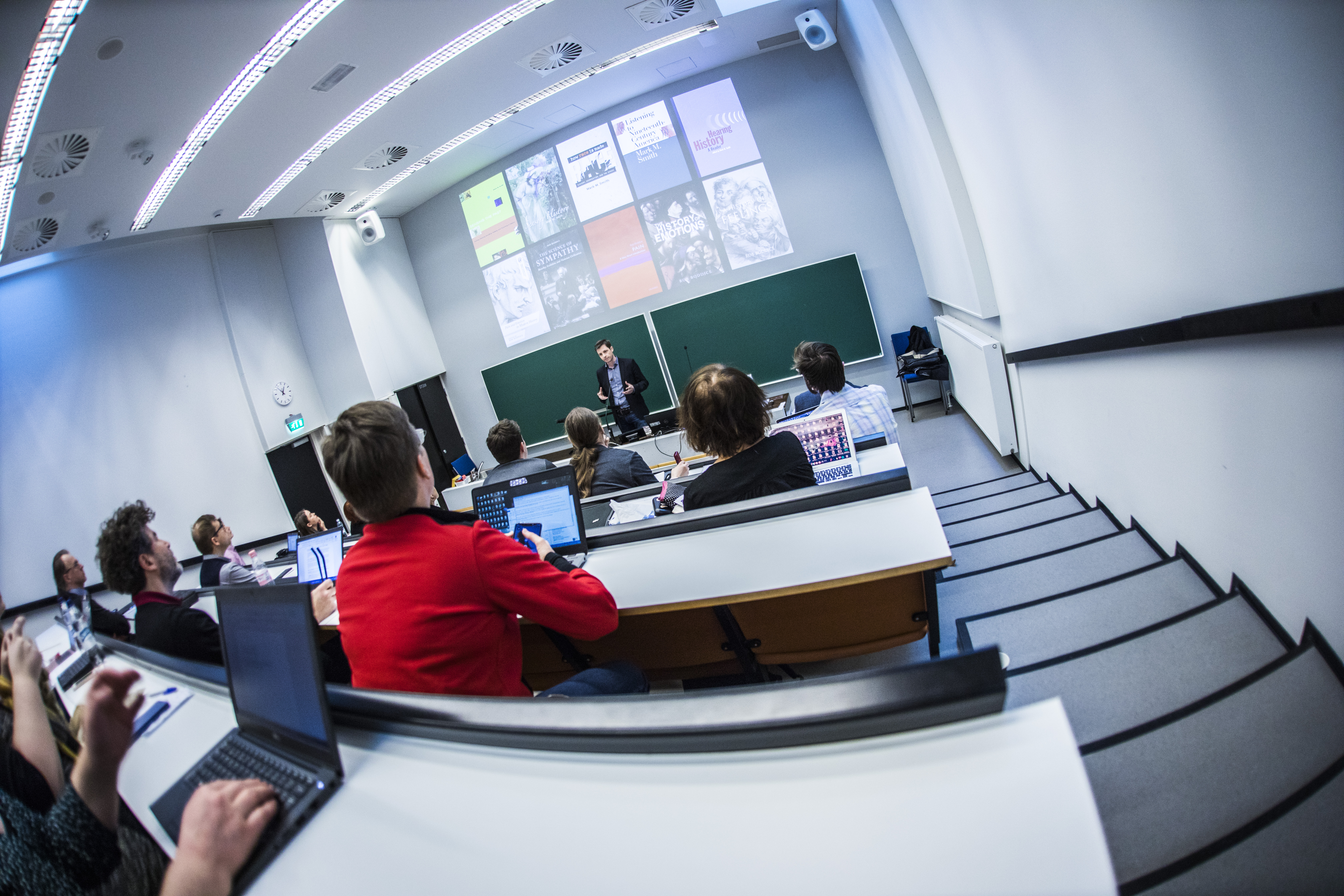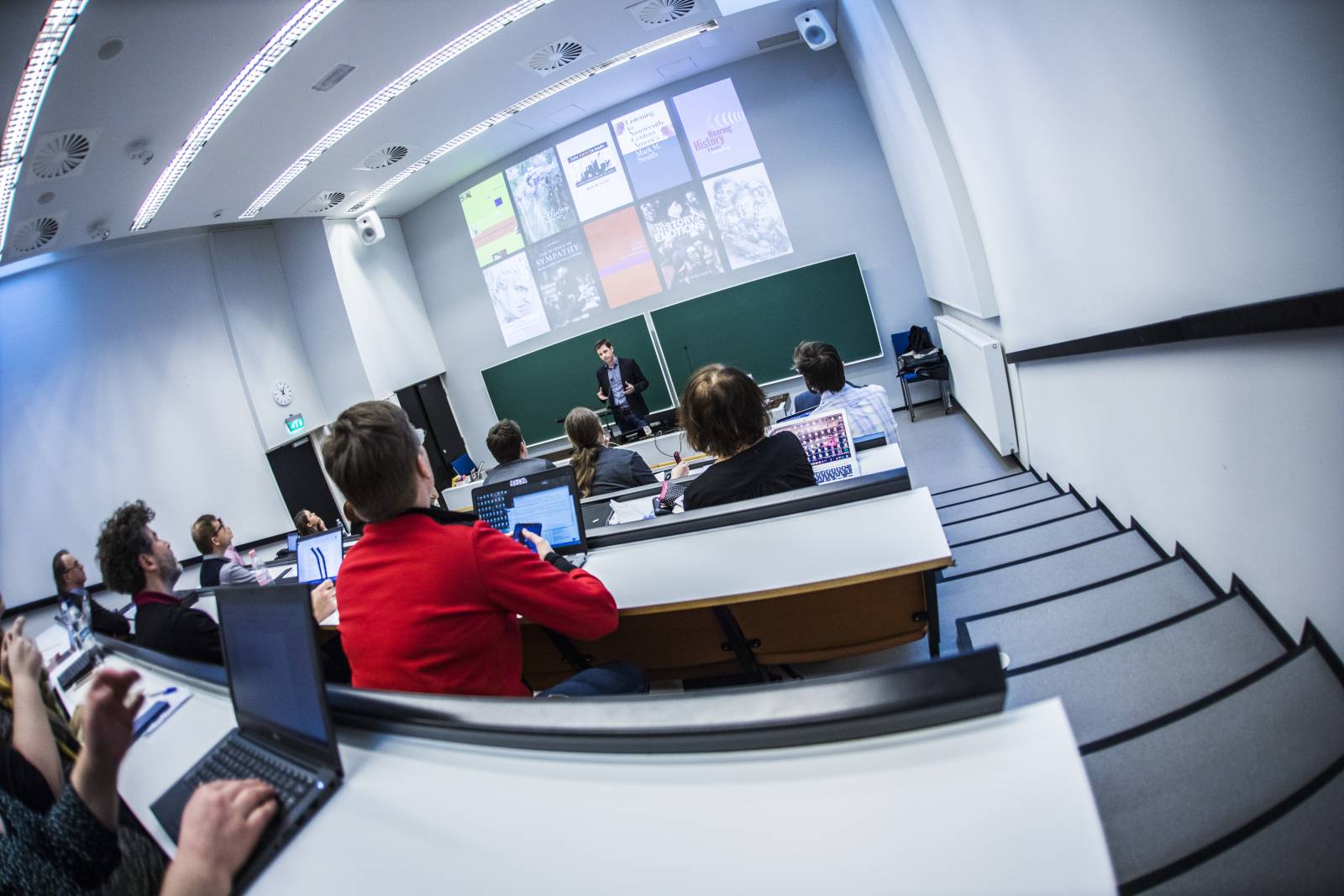
Rob Boddice
“Revolution, modernity, bourgeois society, our own era of globalization – these cannot just be imposed by an economic system, a political structure, or a discursive web of representations, whether textual or, for that matter, visual. They must be learned, lived, embodied, and felt within individual selves.” –Lynn Hunt, “The Experience of Revolution,” French Historical Studies, 32 (2009), 678.
At the beginning of March, the Academy of Finland Centre of Excellence in the History of Experiences (HEX) held its inaugural conference. Engagement levels among the 84 registered participants were high. Emerging from the wreckage of post-modernism, the history of experience thinks seriously about the entanglement of both body and mind with culture and tries to move away from a purely linguistic or textual cultural analysis. It is strongly connected to recent developments in the history of emotions and the history of the senses insofar as those fields have advanced historicist thinking about key components of what it is and what it means to experience something. But the history of experience is not reducible to either emotions or senses.
The opening keynotes from Jan Plamper and Laura Lee Downs neatly framed our own historiographical moment as we collectively turn to experience from discourse, and to new methods of empiricism. Two things stand out:
- That the old analytical dyad of nature/nurture or biology/culture no longer stands up as either grounds for a productive debate or as a good lens through which to conduct research. Thinking holistically about humans as dynamic biocultural entities allows us to take embodiment seriously without falling into biological determinism; it also opens us up to sympathetic scientific research in other disciplines, from social and developmental psychology to social neuroscience.
- Historians are becoming more critically reflexive about their own categories of analysis, addressing, in Downs’ terms, the tension between militancy and scholarship, and the pitfalls of anachronism when projecting current concerns onto the past. Our research encompasses questions of gender, identity, subjectivity and intersubjectivity, collectivity, and politics. It’s important that we commit, in the quest to recover past experience, to doing justice to past realities, without imposing our own.
Across the conference programme, papers grappled seriously with the questions at hand on multiple levels, including some that surprised. I had expected substantial discussion on how to get at “lived experience” in the past: how to reconstruct contexts and to contextualise evidence. I had not expected so much focus on the word “experience” itself, on its own conceptual history and its slipperiness as a category. There is, it seems, a whole strand of historical research to be devoted just to this, which will surely prove as useful as those that unfolded the conceptual histories of words like “emotion” or “sense.” It is important to establish the intellectual foundations upon which a new history of experience is being built, even if we should wish to undermine them. This has us address the echoes of Kant, Marx and Freud, among other luminaries.
I doubt, however, that this is where the focus of the majority will lie. For my own part, I have advocated histories of experience precisely because they permit an engagement with affective and sensory perceptions of reality in historical terms. The word “experience” does not hold my attention so much as an interest in the way people felt. Here the English term feeling provides a clue to an openness regarding the historicity of perceptions of reality and of the historical contexts that are both formative of and formed by such perceptions. “Feeling” pertains to emotion (I feel happy); to sensory perception (I feel your touch); to thoughts and ideas (my feelings on experience are ambiguous); and to intersubjective relationality (I feel you; I feel for you).
A history of experience does not privilege a place outside of time or a presentist cast of epistemology in its interpretation of the past. Instead it assumes that past lives were lived in past contexts, according to past epistemologies and, importantly, through past ontologies and situated affective and sensory biocultural systems. What it means to be human – to experience life as a human being – is historical. It changes over time. The human itself is a biocultural historical artefact.
Some of us are starting to investigate this historical artefact through “contexts of possibility”: the complex biocultural web in which experience is situated and delimited, but not entirely bound. The dynamic relation of body-mind-world permits of formation and deformation, continuity and change, but it also emphasises that there is nothing fixed in our own experience. We cannot, as historians, automatically assume the capacity of empathy across time and space. Admitting this limitation forces us to focus on what we can reconstruct, that we might access, however partially, the “lived experience” of those who came before us.
The how of reconstruction occupied many speakers, who laid before us a rich array of sources to be examined in new ways. Material culture – the physical stuff of the past – loomed large as an important marker of human interaction, encounter and signification. Everything, from personal possessions to photographs to physical places, carries marks of human use or else records modes of human being. Such modes lead us to the senses, to emotions, to beliefs, and to practices, and to a desire to recover the situated body and the brain, drawing upon and extending developing methodologies in the history of emotions and the senses.
All of this is bundled with analysis of more traditional historical sources – text, ego documents, literature, music, institutional records, art – and innovative techniques for reading them, from digital text mining to extrapolations from neuroscientific metadata. We aim to pay attention to what is said, but also to listen to the unsaid. We want to know the secrets of the past, but also the politics of secrecy per se. We want to know the contingencies of gesture and expression, of intercourse verbal and physical, and of reason, madness and (dis)ability. In sum, this conference, and the broader HEX project in general, has opened up new vistas in historiographical method and historical understanding that look to be set for fruitful development in the coming years. It promises to be quite the experience.
The article has also been published in Alusta!, the e-publication of the Faculty of of Social Sciences, Tampere University.



Comments